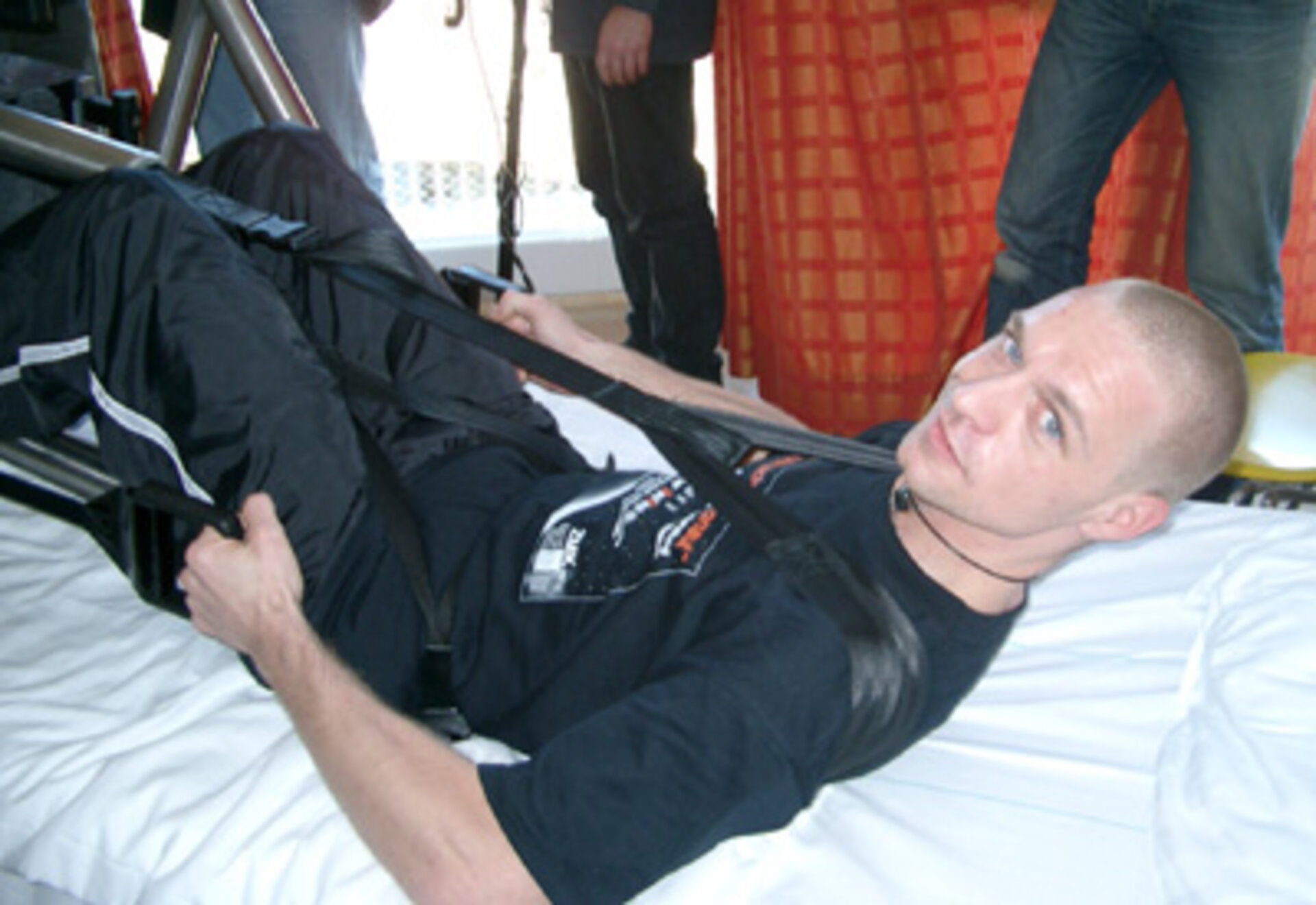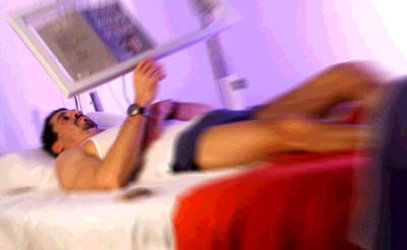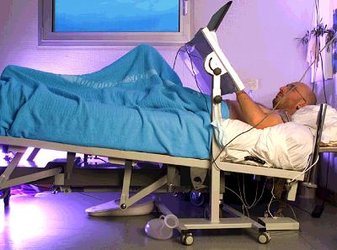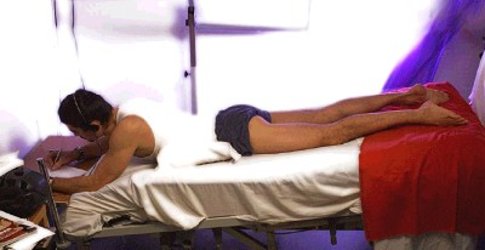Bed rest study started in Berlin
A group of four ‘terrestrial astronauts’ have just started an unusual mission at the Benjamin Franklin School of Medicine in Berlin. The four men are subjects in a 56-day bed rest study at the Centre for Muscle and Bone Research. The research, which is in part funded by ESA under its Microgravity Applications Promotion (MAP) Programme, will help to prepare astronauts for future manned missions to Mars.
The team of four were selected from more than 400 applicants after extensive psychological and medical testing. They have eight weeks of strict bed rest ahead of them, which means no standing up, no visitors, continuous medical examinations and a special diet.
Quartet on virtual Mars mission

It is not going to be an easy mission, but all four are highly motivated and determined to give it their best shot. By staying in bed for two months the team can help preparations for the first manned missions to Mars.
On long-duration spaceflights astronauts lose both muscle and bone mass because of the effects of weightlessness, as do patients confined to bed on Earth - although to a lesser extent - because they have no vertical physical load. The research team in Berlin will be testing a structured training programme to try to counteract this effect.
Five bed rest missions
In total 20 men, aged between 25 and 45, will take part in the bed rest study in Berlin. “We just don’t have the capacity to examine all 20 subjects at one time, so we have divided them into five teams of four”, explains Professor Dieter Felsenberg from the Centre for Muscle and Bone Research. Once the first team of four has completed their eight-week mission, four more teams will follow, one after the other. The last team will leave their terrestrial space station around the beginning of March 2004.
Follow-on study

Last year, in association with NASDA and CNES, the Japanese and French space agencies, ESA carried out a long-duration bed rest study at the MEDES Space Clinic in Toulouse. Initial results show clear trends as to the effect exercise has in reducing the loss of muscle and bone tissue, although there are individual differences in the amount of bone loss experienced. Further research is needed to find out why some people have much less bone loss; which could help find a solution for those who do.
The Berlin study follows on from the study in Toulouse but will look more specifically at bone loss. Participants will be divided into two treatment groups. Whilst still lying down, one group will regularly train on a vibration platform. Using a special harness the soles of the participant’s feet will be kept in contact with the platform. The vibrations are assumed to stimulate bone-tissue maintenance through the pull of the tensed muscles on the underlying bones. The second group - the control group - will be set just one task, to remain horizontal and undertake no physical activity whatsoever.
This study is in part funded by ESA's MAP Programme, which looks to involve universities and industry in the development of space-related research that can also be used to improve the quality of life on Earth. The Berlin study is of particular clinical value. “Studies of this kind and complexity are necessary to improve our understanding of how bone tissue can be maintained in situations without normal loading,” explains ESA’s senior physiologist, Benny Elmann-Larsen. “Our findings have already pointed us in the right direction when it comes to helping patients recover from bed rest”.
Plenty of spare time
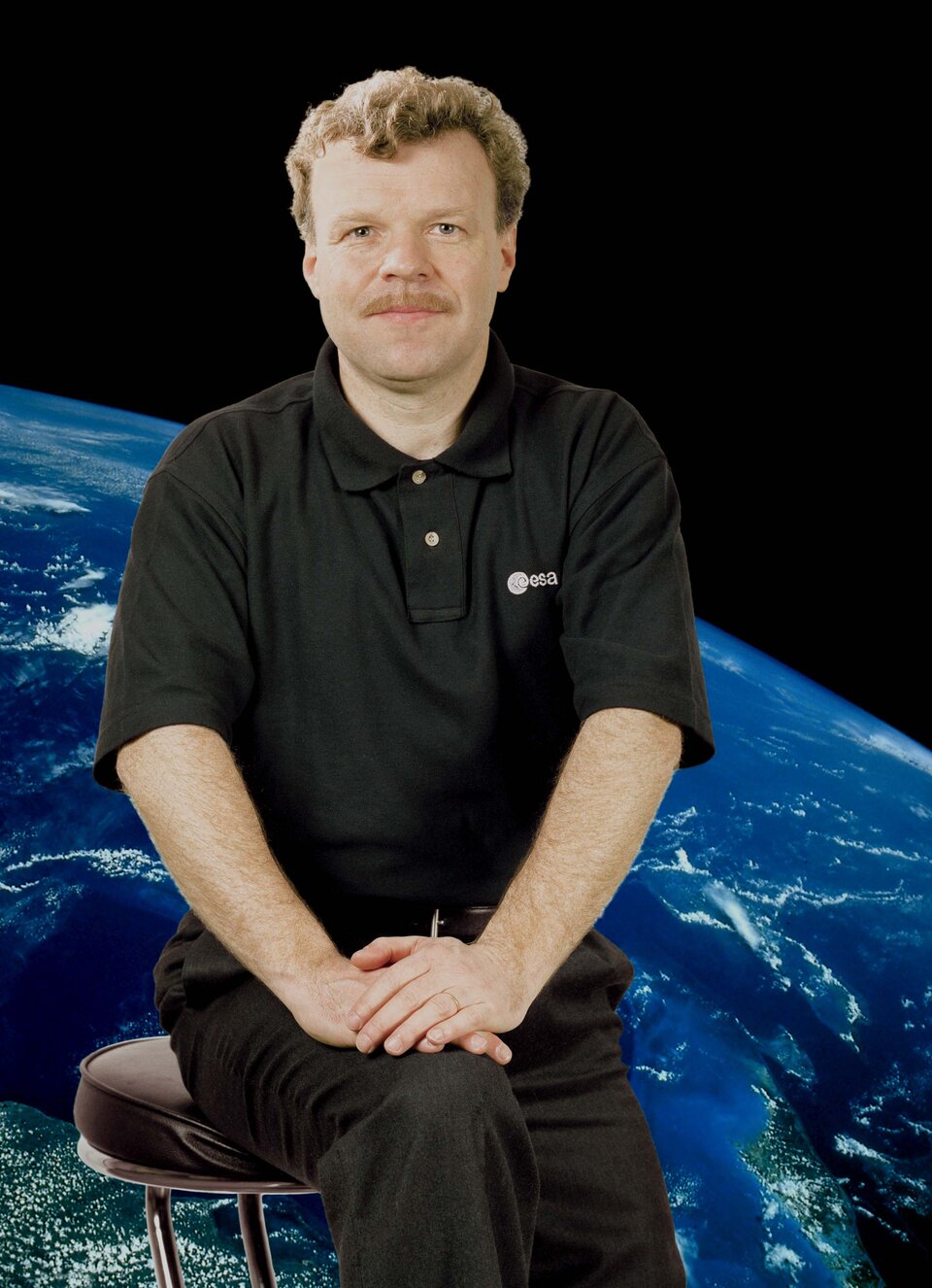
Although the terrestrial astronauts face a busy daily schedule, including extensive medical testing and a physical training programme, they will also have plenty of spare time. The research centre has provided each of them with a telephone, a television and a computer to browse the Internet. Participants have also come fully prepared; as well as computer games they have also brought along stacks of books.
ESA astronaut and scientist Reinhold Ewald has a last word of advice for the earthbound astronauts. “Ask them to roll your bed over to the window at night”, he recommends “that way, when the skies are clear, you might see the International Space Station pass overhead, then you will be reminded why you are doing this.”


